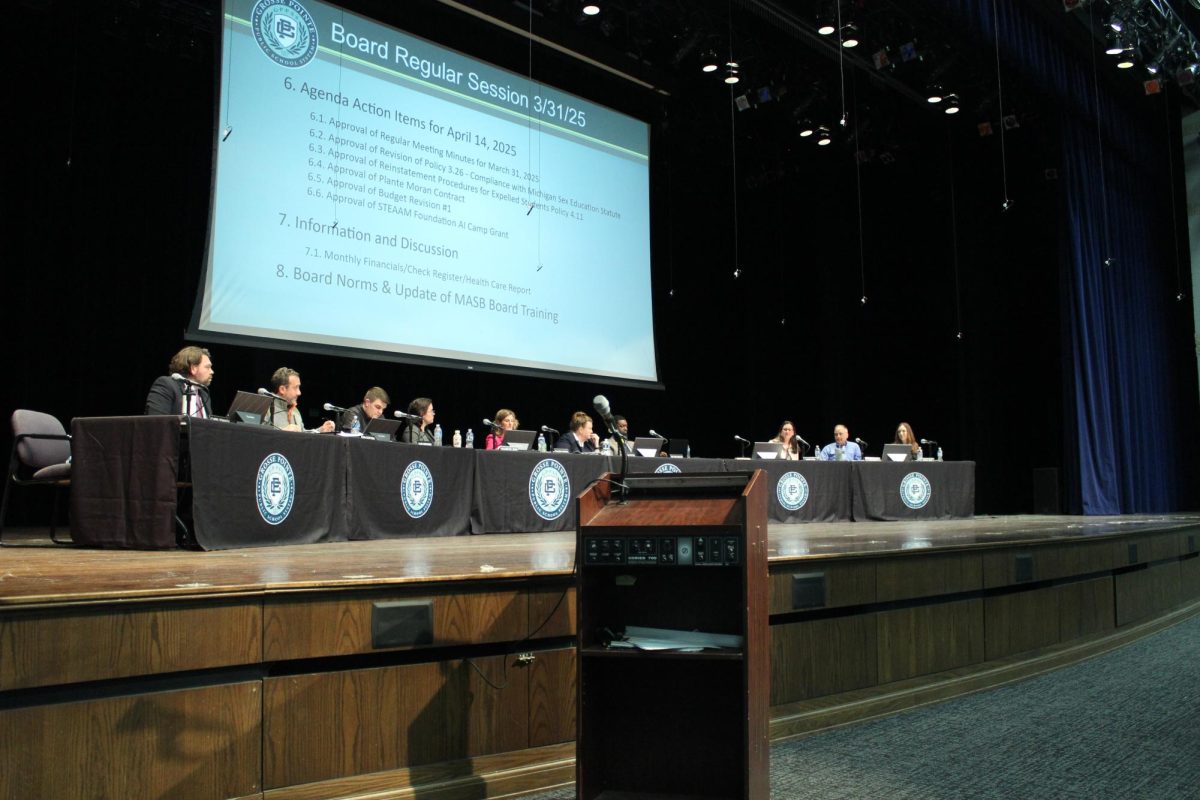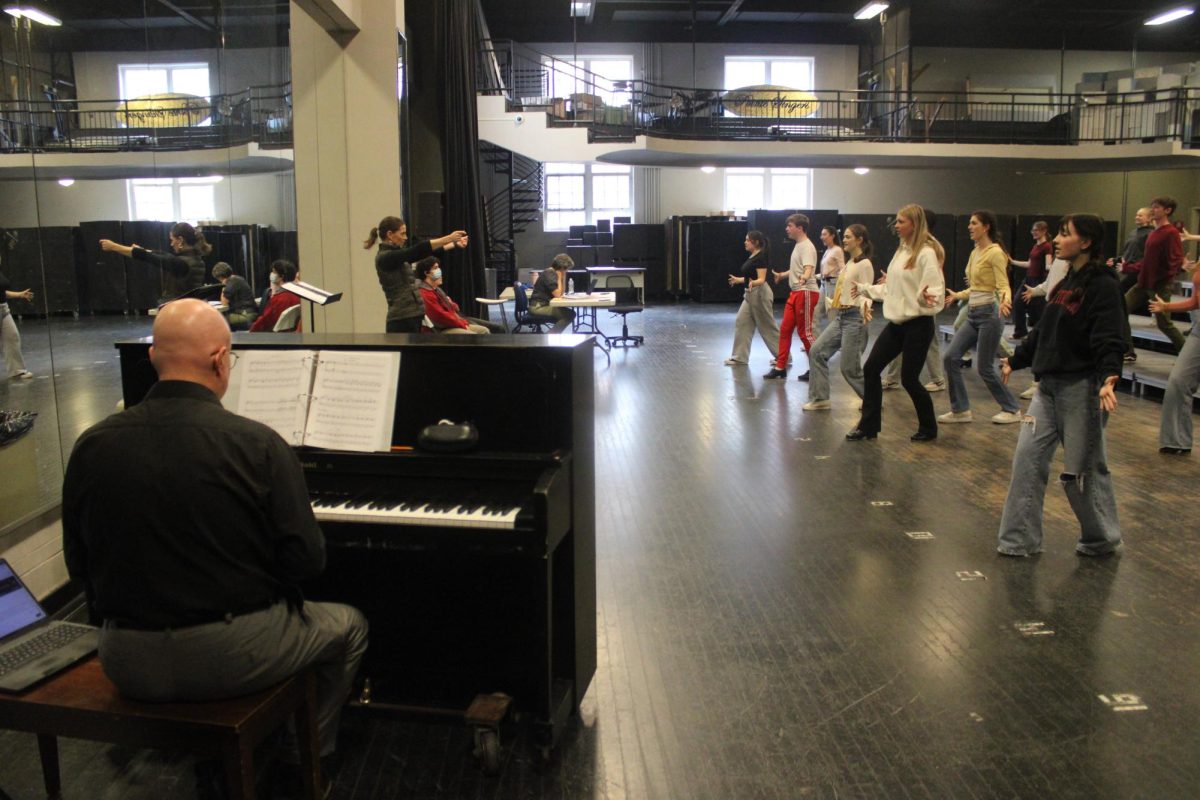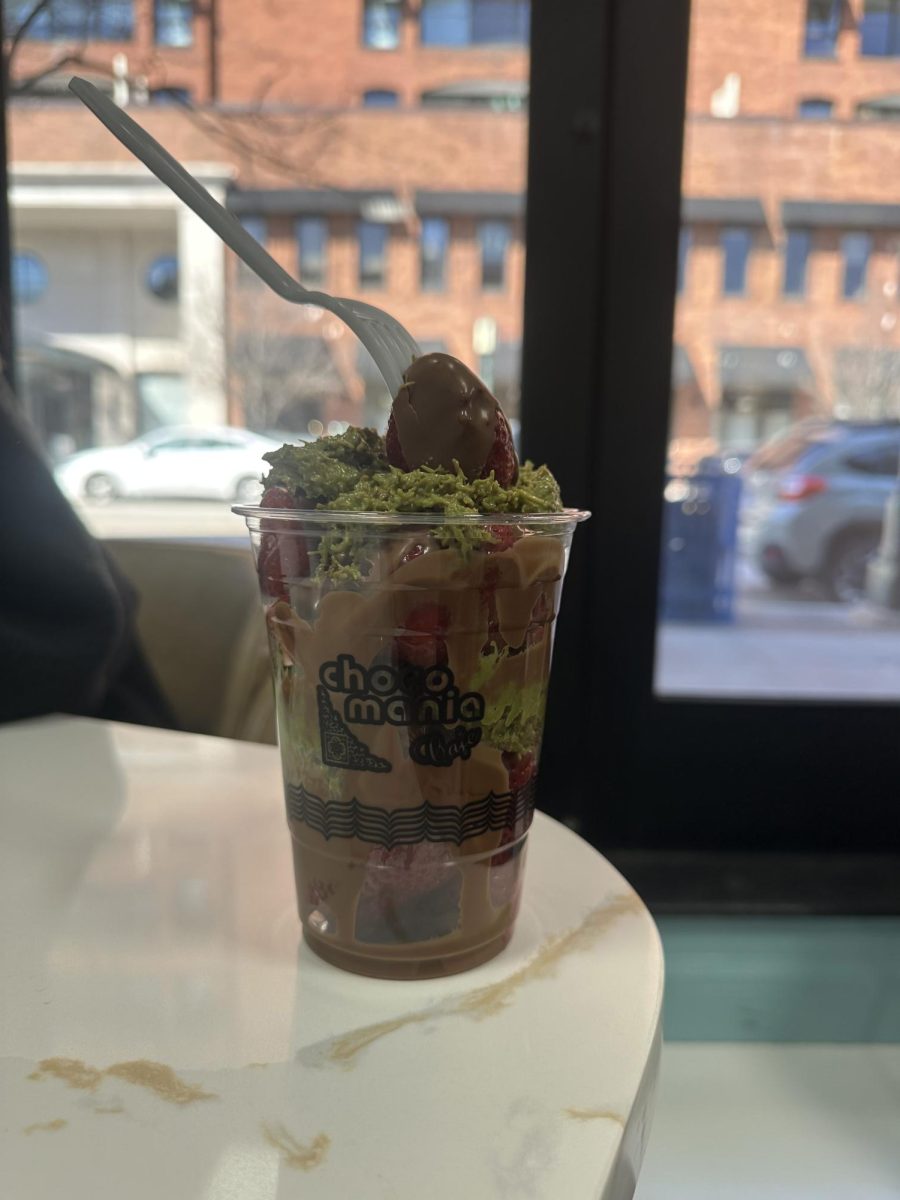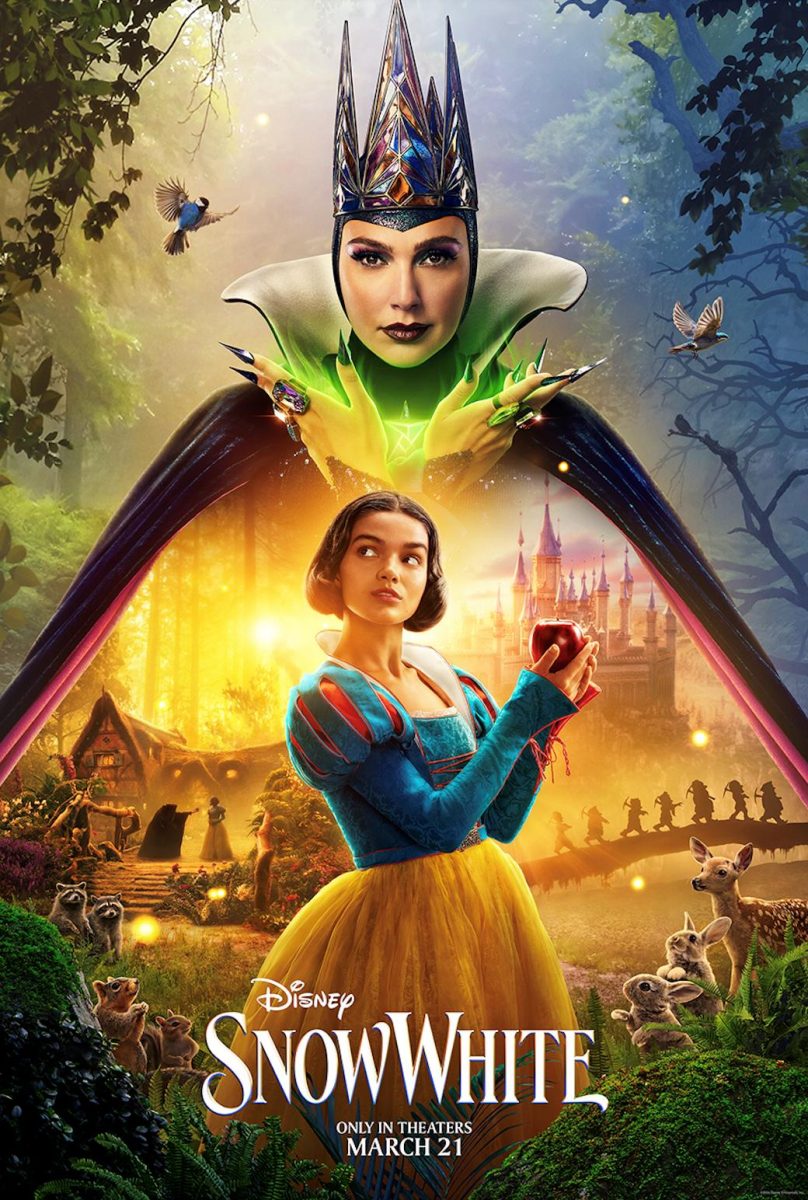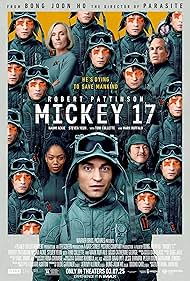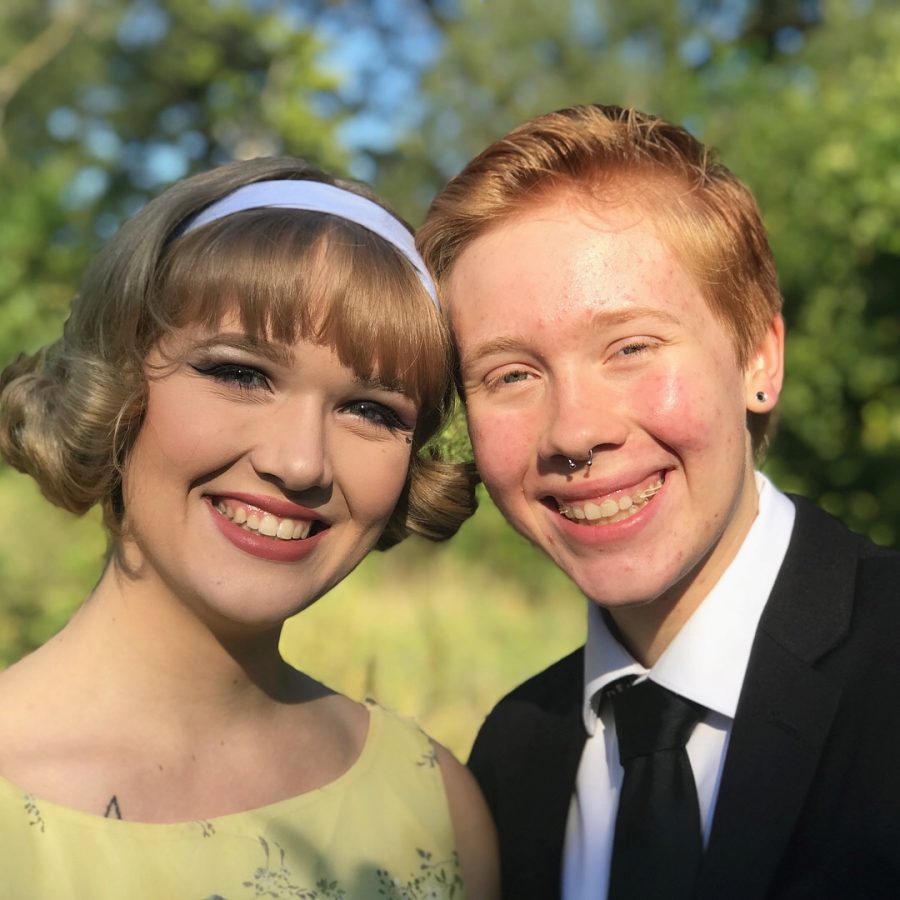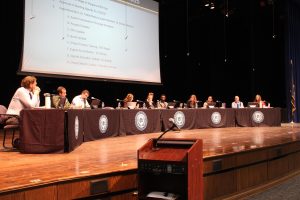Are you two twins? How LGBT couples navigate Valentine’s Day
February 14, 2019
Junior Troye Aho is a self proclaimed “anxious mess.”
He’s particular, he’s passionate– his interview outfit an activism hoodie– and he’s down-to-earth in such a way that ventures on “a hole in the ground.”
His uplifter? Girlfriend of two and a half years, Jessica Dodge ’19.
“We were first set up by someone who we both knew was only setting us up because we were the two LGBT kids he knew,” Aho said. “Actually, I’m pretty sure we were the two LGBT kids he’d ever met.”
As Valentine’s Day floods couples’ mind and store aisles, the small circle of LGBTQ+ relationships populating South’s dating culture find themselves in a metaphorical limbo, both “together-and-not,” so to speak, according to Dodge. Aho, as a transgender male, and Dodge have grown accustomed over the course of their relationship as to what is and is not publicly acceptable in order to exist as comfortably as possible.
“Troye and I are definitely very aware of displaying any sort of public affection,” Dodge said. “You never know who’s around, who’s going to think something’s ‘up,’ or how something as small as a hug may be seen as confrontational.”
As characterized by traditional LGBT culture of the 80’s and 90’s, the aura of secrecy surrounding such relationships was once used as a strength, bringing similar individuals together and cultivating an unspoken bond across the community. Today, the much more widespread acceptance of LGBTQ+ relationships– as supported by social media, pop culture, and the United States’s 2015 legalization of gay marriage– has shifted said secrecy into a need to understand the individuality of LGBTQ+ individuals.
“I had to learn over time that just because someone you meet happens to be gay, it doesn’t automatically mean they’re this great person,” Aho said. “In today’s age, when everyone feels infinitely more accepted by society to come out, you’re no longer bonded by your sexuality or identity. You’re just bonded because you’re people.”
As expressed by Dodge, understanding members of the community beyond their preferences is what truly allows relationships to grow. When asked to describe one another, both emphasized the other’s passion for life and the world around them, which has ultimately translated into how they traverse their relationship.
“(Dodge) can be very in the clouds, and I can get very down,” Aho said. “It’s cliché, but the fact that we’re so different but still care so deeply about the same things is how we balance one another out.”
According to director of Wayne State University’s Gender, Sexuality and Women’s Studies Program Janine Lanza, LGBTQ+ relationships face cruelties on a daily basis– even from those within the community. As elaborated by Aho, the gradual, “open” acceptance of LGBT individuals has divided the community into a series of subcultures that can either be viewed as beneficial or the community’s detriment.
“People can be very surprised to find out that an individual can be gay and transphobic, or transgender and transphobic,” Aho said. “There was a ‘Drop the T’ movement in 2015 advocating to ‘remove’ transgender individuals from the LGBT community; the conflict within our own groups really shows how much we need people like our partners.”
According to Dodge, with this being the couple’s third Valentine’s Day spent together, the two plan on relishing in the albeit cheesy holiday as a reminder that they both have someone who loves and cares for them.
“(Dodge is) my best friend,” Aho said. “I never have to think about being romantic, we just care about one another deeply beyond our relationship. She’s my family, and she always will be.”
Check out new radio show “Tiny Talks” for more with Aho and Dodge:
https://www.spreaker.com/user/8346291/are-you-two-twins-how-souths-lgbt-couple

